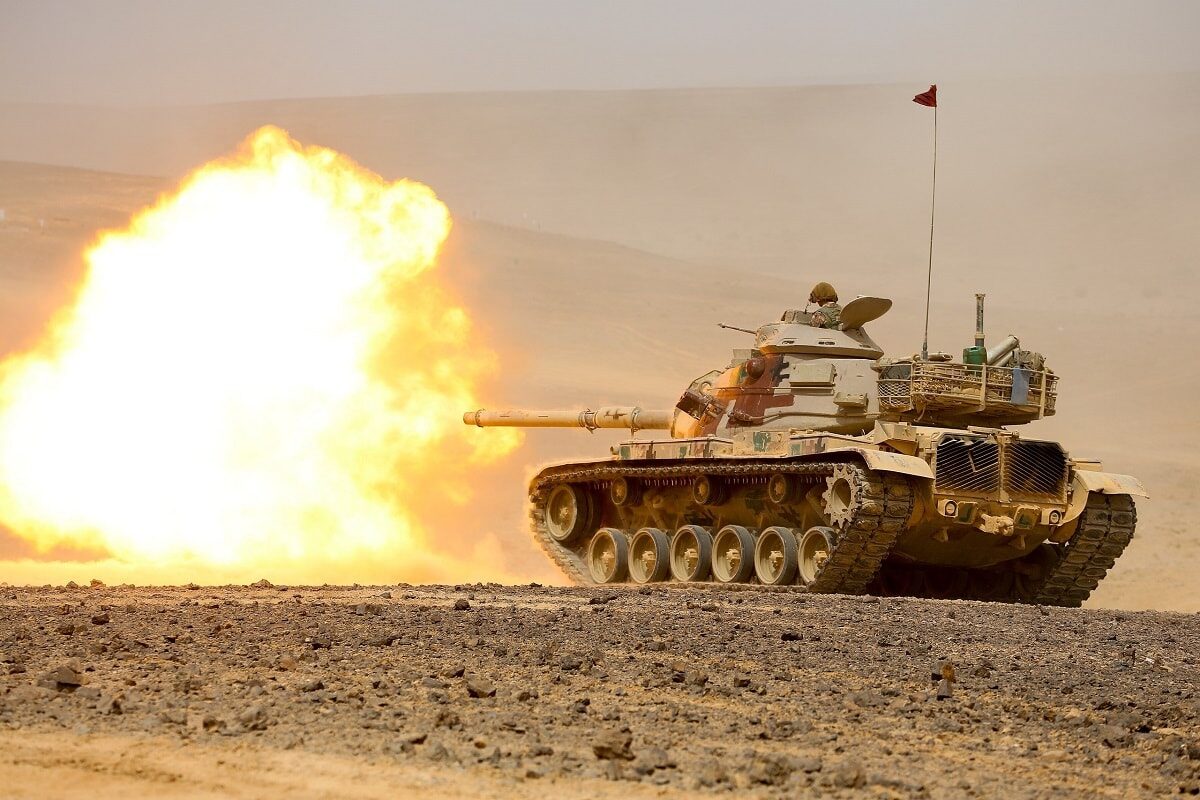By all accounts, Greek Prime Minister Kyriakos Mitsotakis’ visit to Washington was wildly successful. He received a standing ovation in a joint meeting of Congress. The Pentagon remains grateful at expanding U.S.-Greek defense ties. While Greece has stood firmly in defense of Ukraine, fellow-NATO member Turkey has played a double game, promoting a myth of indispensability toward Ukraine while simultaneously seeking to profit off tragedy and helping Russian President Vladimir Putin to evade sanctions.
During his White House meetings, Mitsotakis came prepared, reportedly providing maps of Turkey’s repeated aerial incursions of Greek waters and territory. Among the ambassadorial corps, Greek ambassador Alexandra Papadopoulou enjoys a reputation for acuity, eloquence, and mastery of material; Turkish ambassador Murat Mercan has a reputation, on the other hand, of being affable but superficial, his statements disconnected from reality or any connection to policy reality in Ankara. Mitsotakis’ success and the reception he received were the reasons Turkish President Recep Tayyip Erdogan subsequently threw a temper tantrum.
Erdogan’s behavior is not consistent with the character expected of NATO countries. While Turkey has struggled with dictatorship and military coups over the course of its nearly 100-year, post-Ottoman history, the situation has seldom been this bad for so long. In quick succession, Erdogan has targeted Kurds, liberals, Kemalists, those with a history of service in the West or NATO, his former Gülenist allies, and even former members of his own political party. Since July 2016, Erdogan has ordered the arrest of 100,000 political opponents and fired more than 150,000 others.
Turkey’s domestic repression is bad enough, but its support for terrorism makes matters worse. There would have been no Islamic State in Iraq and Syria had Turkey not provided the group and its precedents safe haven if not logistical if not material support. Detentions of ISIS leaders are fleeting and demonstrate a revolving door. Despite announcements to the contrary, Turkey continues not only to shelter Hamas, but also to allow it to plan terrorism from its territory. A Turkish Constitutional Court judge called for Israel’s destruction, and Turkey helped Iran deliver weaponry to Libyan Islamists.
Apologists for Turkey point to its contributions to the fight for freedom during the Korean War and the Cuban Missile Crisis as a reason why Washington and Brussels should defer to Ankara. Turkey’s sacrifice then was real, but the examples fall flat: They represent the type of Turkey to which Erdogan has turned his back. Turks who would today counsel the deployment of troops to fight communist aggression or assist the United States would find themselves guests in Turkey’s expansive prisons, not in Erdogan’s multibillion-dollar palaces.
Turkey does not belong in NATO, but there is no formal mechanism to expel wayward members. At a minimum, Erdogan gets power by forcing the United States and other NATO members on one hand, and Russia on the other to bid for its support. Erdogan’s animosity toward the United States is famous, however. If ideology rather than material gain motivates him, however, he gains more from being a Trojan horse in the consensus-governed alliance than from voluntarily exiting it.
Back to Mitsotakis: the power of the maps he provided in his meetings cannot be overstated. There have been hundreds of Turkish violations of Greek airspace. Such violations are not neutral: Turkey cannot provide any instance of Greek violations of its airspace or unsanctioned overflights of its territories. After the United States began utilizing the port of Alexandroupolis, Turkey began violating airspace over that location as well. Turkey has also threatened military force against the Greek island of Kastellorizo.
This brings up a tricky problem. Whenever Turkey ratchets up tensions with Greece, diplomats seek to defuse tension, and analysts and journalists talk about the possibility of war between two NATO members. The dynamics, however, change considerably when Turkey leaves NATO. Any attack on Kastellorizo, Mytilene, Chios, Samos, Ikaria, or any other Greek territory would trigger NATO Article 5 which stated that if any NATO ally is a victim of an armed attack, it is akin to an attack on every member of the alliance and all members will respond accordingly. Simply put, inside NATO, Turkey can be a bully and get away with its behavior. Outside NATO, however, Erdogan would face real consequences for his actions.
Erdogan likes to project an image of power but as even the Turkish people have come to realize, he is in reality a thin-skinned coward. After multiple purges, the Turkish army is today like Russia’s a shell of its former self. Erdogan will remain in NATO against all pressure otherwise because to agree to go his own way would be to expose Turkey for its true weakness.
Now a 1945 Contributing Editor, Dr. Michael Rubin is a Senior Fellow at the American Enterprise Institute (AEI). Dr. Rubin is the author, coauthor, and coeditor of several books exploring diplomacy, Iranian history, Arab culture, Kurdish studies, and Shi’ite politics, including “Seven Pillars: What Really Causes Instability in the Middle East?” (AEI Press, 2019); “Kurdistan Rising” (AEI Press, 2016); “Dancing with the Devil: The Perils of Engaging Rogue Regimes” (Encounter Books, 2014); and “Eternal Iran: Continuity and Chaos” (Palgrave, 2005).

